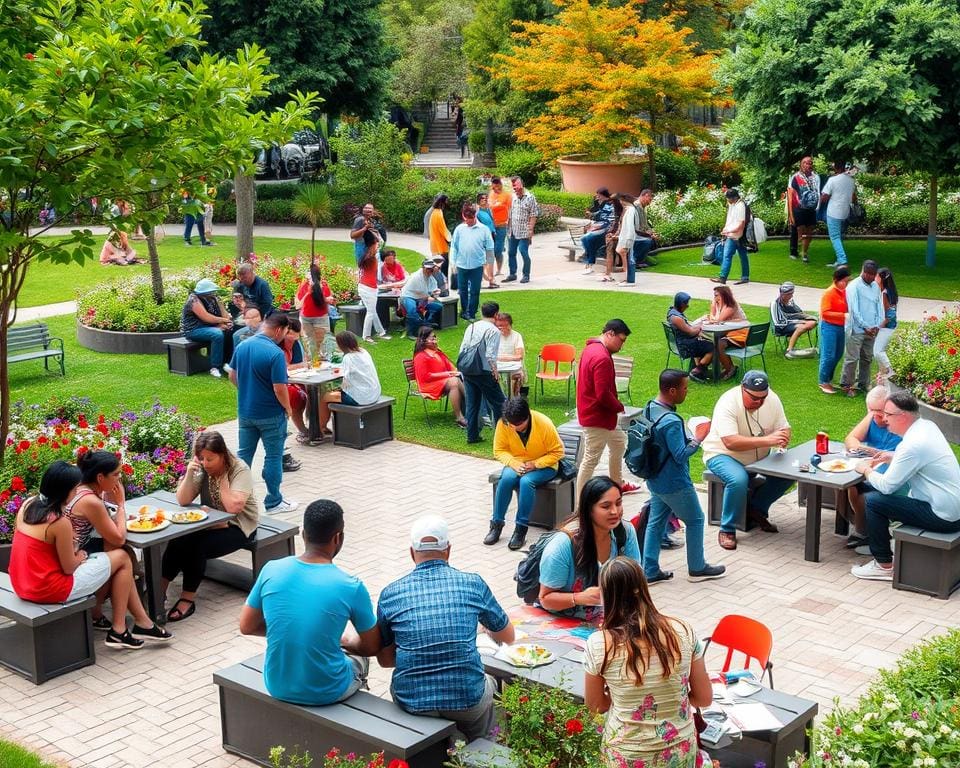In an age where technology often replaces face-to-face interactions, the significance of strengthening social connections for health cannot be overstated. Research shows that individuals who cultivate strong relationships enjoy enhanced overall well-being, including lower mortality rates and better mental health. Social health initiatives play a crucial role in building social networks for health, fostering environments where supportive relationships can thrive. By embracing community-building strategies, we not only enhance individual health but also promote collective resilience. Understanding these dynamics is essential for anyone looking to improve their quality of life.
Understanding the Importance of Social Connections for Health
Social connections serve as a crucial element for well-being, directly influencing both physical and psychological health. Strong relationships enhance quality of life and provide various health benefits. Exploring the ways these connections impact us reveals their indispensable role in fostering a healthier existence.
How Social Connections Impact Physical Health
It is well-documented that social connections impact physical health in significant ways. Engaging with friends and loved ones can lead to reduced levels of stress, which in turn bolsters the immune system. Individuals who sustain active social lives often experience lower blood pressure and a diminished risk of serious health issues, including heart disease. The encouragement from supportive relationships can motivate individuals to adopt healthier lifestyles, contributing to overall wellness.
The Psychological Benefits of Strong Relationships
Strong interpersonal relationships have far-reaching psychological benefits. Individuals enjoying robust social support report heightened life satisfaction and experience lower levels of anxiety and depression. The emotional comfort derived from these connections instills a sense of belonging, fostering resilience during challenging times. Such relationships are vital to emotional health, offering a protective buffer against life’s stresses.
Research Insights on Health Through Social Connections
Numerous studies provide research insights on health through social connections. Scholars and organizations emphasize the importance of community engagement, illustrating that people involved in social networks are more likely to maintain healthy habits. These research findings underscore how interconnectedness not only enhances personal health but promotes collective well-being. Nurturing social ties leads to positive health outcomes, amplifying the overall quality of life.

Strengthening Social Connections for Health
Building and maintaining relationships is a heartfelt endeavor that requires a commitment to nurturing the bonds we share with others. Practical ways to build and maintain relationships can be woven into our daily routines, such as regularly scheduling quality time with friends and family. Engaging in shared hobbies not only enriches interactions but also deepens connections, while participating in group activities introduces opportunities to meet new people and expand one’s social circle.
Practical Ways to Build and Maintain Relationships
In today’s fast-paced world, modern technology offers innovative platforms to stay connected, making it easier than ever to maintain relationships over long distances. Video calls, social media, and messaging apps can bridge geographical gaps, ensuring that meaningful conversations and interactions continue to thrive. The effort put into these connections directly correlates with enhanced social connectedness for better health, fostering a supportive network that can provide emotional and physical benefits.
The Role of Community Support Programs
Community support programs play an indispensable role in strengthening social ties within neighborhoods. These initiatives, often launched by local organizations or health agencies, are pivotal in enhancing social connectedness for better health. Research from the National Institutes of Health underscores the effectiveness of these programs in fostering relationships that lead to healthier lifestyles. Workshops, social events, and volunteer opportunities create environments conducive to forming new friendships and deepening existing ones, ultimately promoting collective well-being and resilience in communities.









